WW1 letters reveal how social club lifted morale
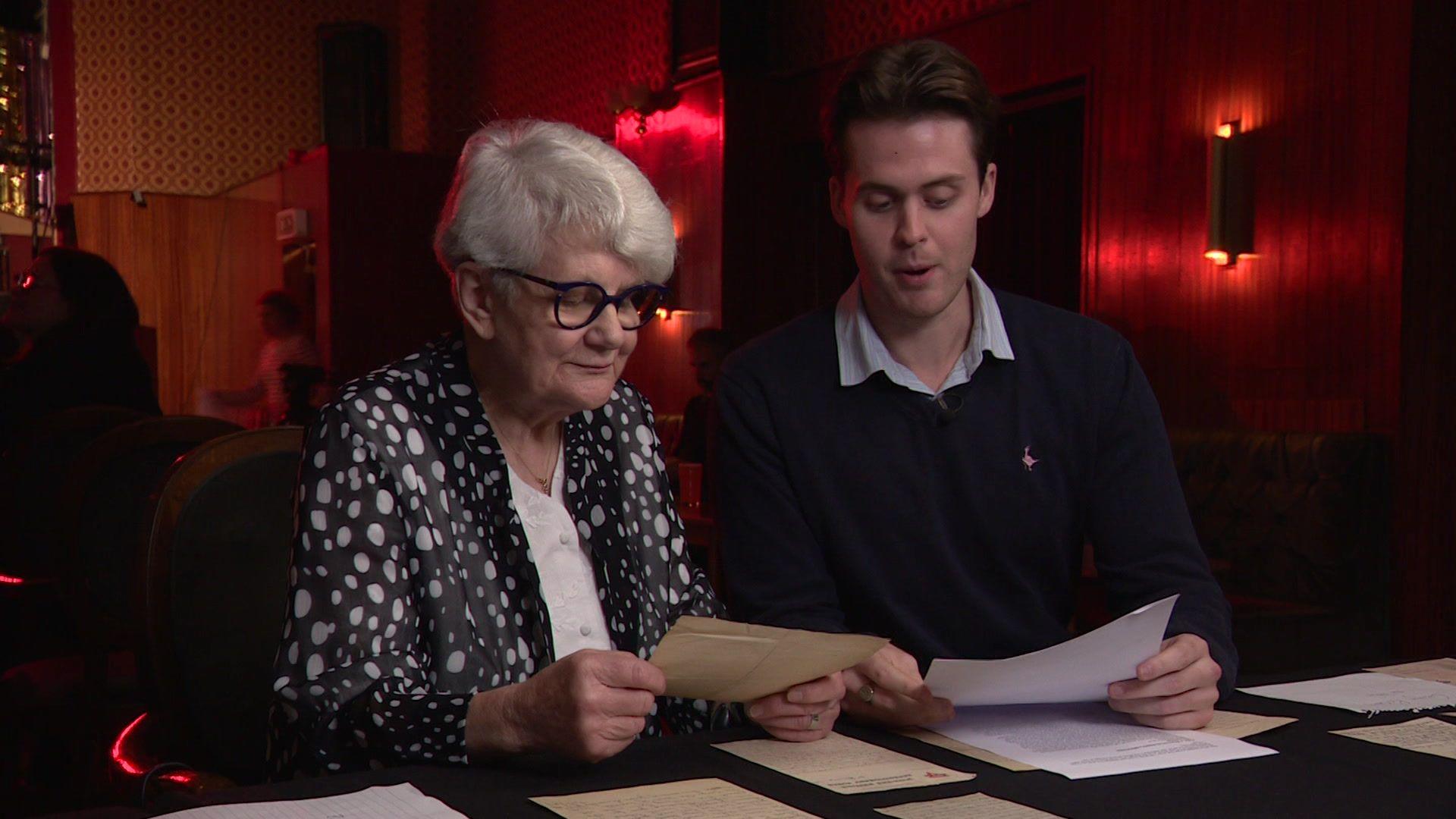
Chris Highmore and her grandson Tom look through the letters from James Cole - his great great grandfather and another letter from great great uncle Alf
- Published
A box of letters unearthed in renovation works at a London social club has revealed the moral support the club gave to its members who were called up to serve in World War One.
About 500 men from Hackney's Mildmay Club went to serve in the Great War, and around 90 of them never returned home.
"Around four years ago we started extensive renovation works and that opened up a couple of attic spaces, where we just found absolute stacks of archive material and letters going back to 1888," explained committee member Jon Riley.
"Part of what the archive team found was how important the club was during the First World War, and the history of some of the people running the club at the time."
The club secretary then was a man known as Ralph Manley and nearly all of the letters found were addressed to him.
He sent the members of the Mildmay Club cigarettes, pipes, tobacco and food to the trenches, as well as regular updates from the club, for which the newly-drafted soldiers were apparently very grateful.
But Mr Manley was a mysterious character.
When the Mildmay club decided to track down his ancestors and those of the letter-writers using the family history site Ancestry, Ralph Manley was nowhere to be found in any of the records.
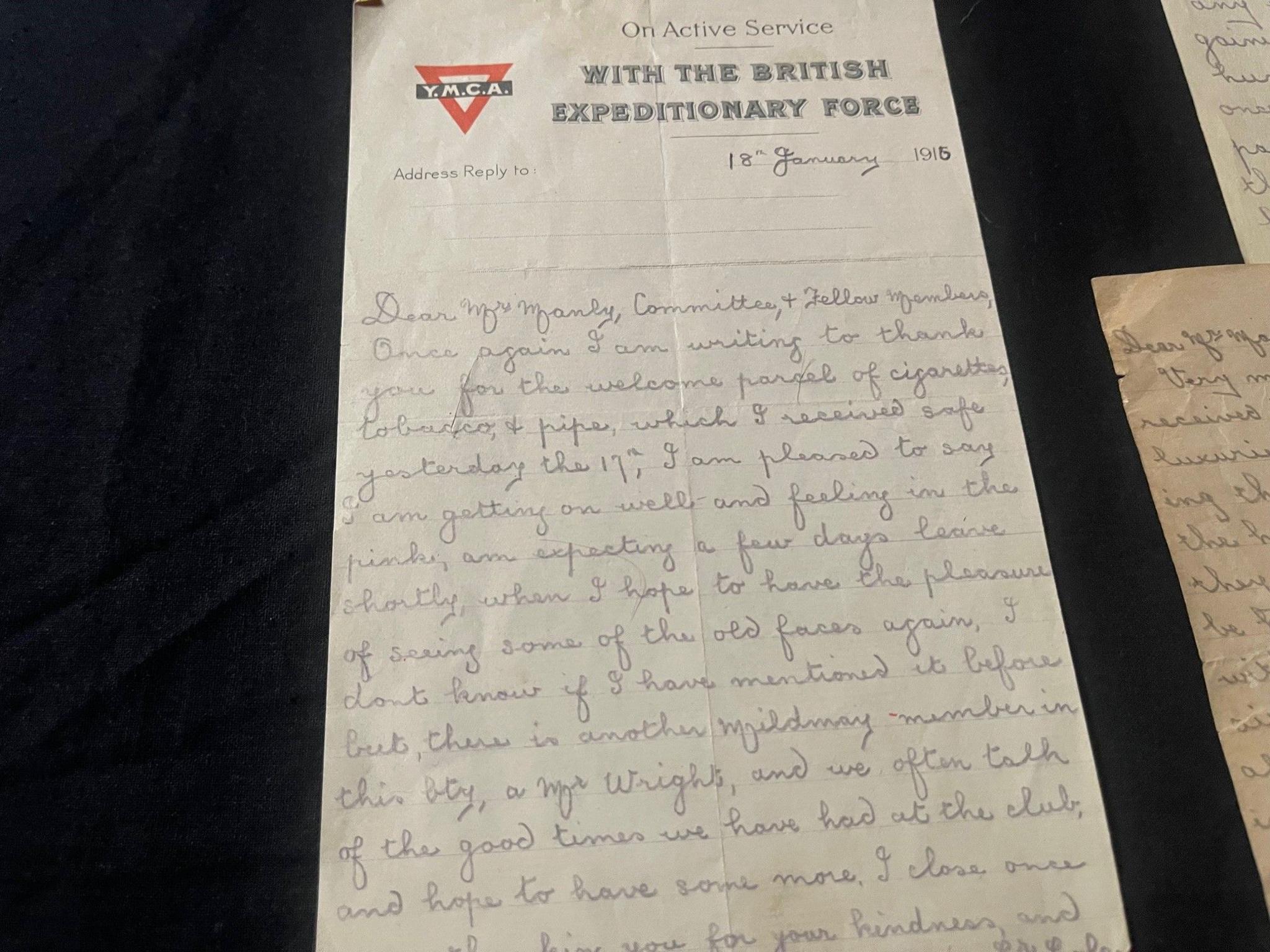
The archive of letters has helped descendants of the soldiers understand them more
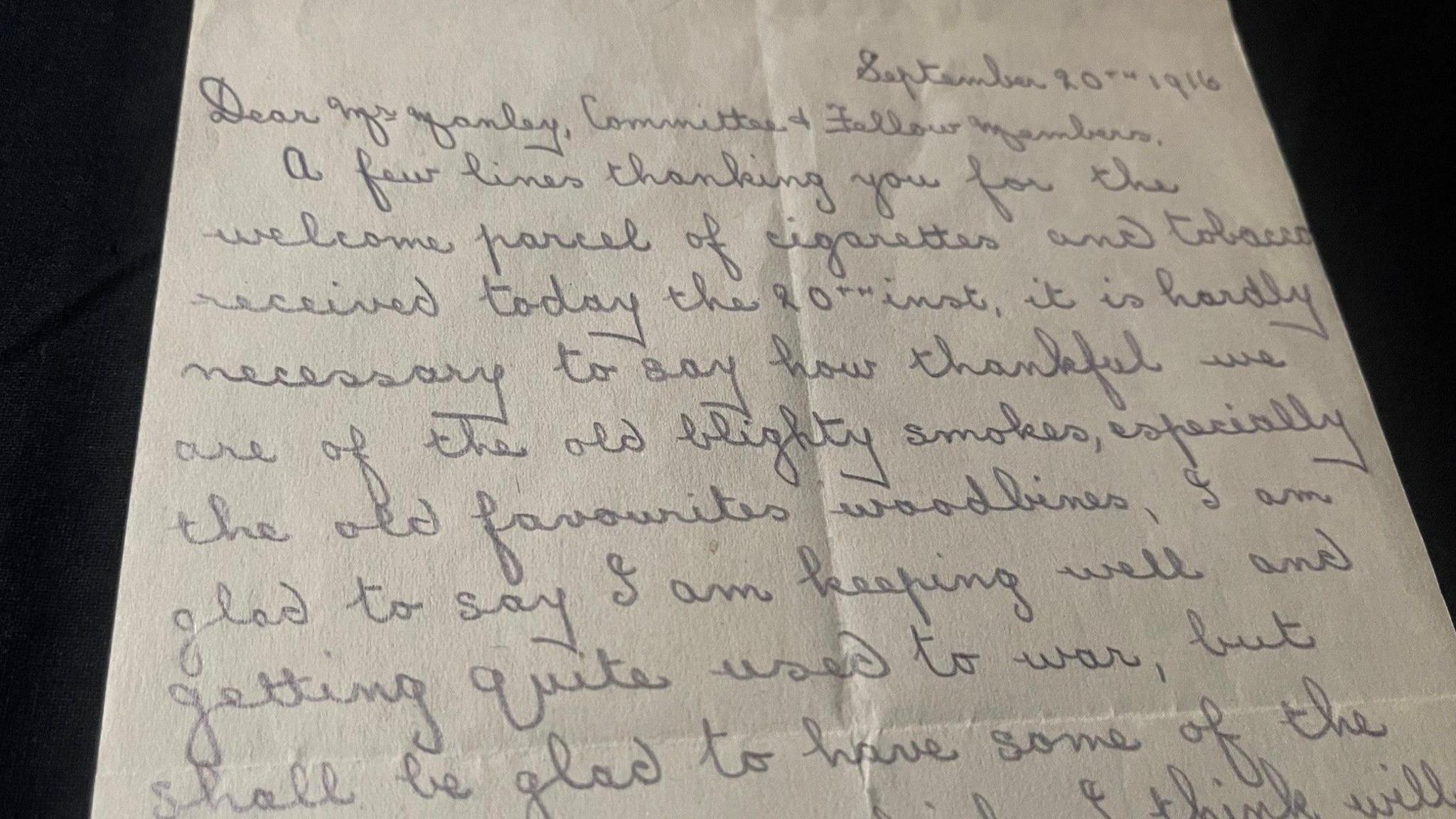
One of the letters found in the attic of the Mildmay Club during renovation works was addressed to Ralph Manley, and described the situation on the front line of the Great War
It was almost as if he didn't exist.
"The Mildmay club asked us to get involved because they really wanted to find out more about him," said Grace Tabern from Ancestry.
"They'd got these fantastic letters and he was so involved in the club, but nobody could find anything about him, apart from a newspaper article that kind of described him a little bit."
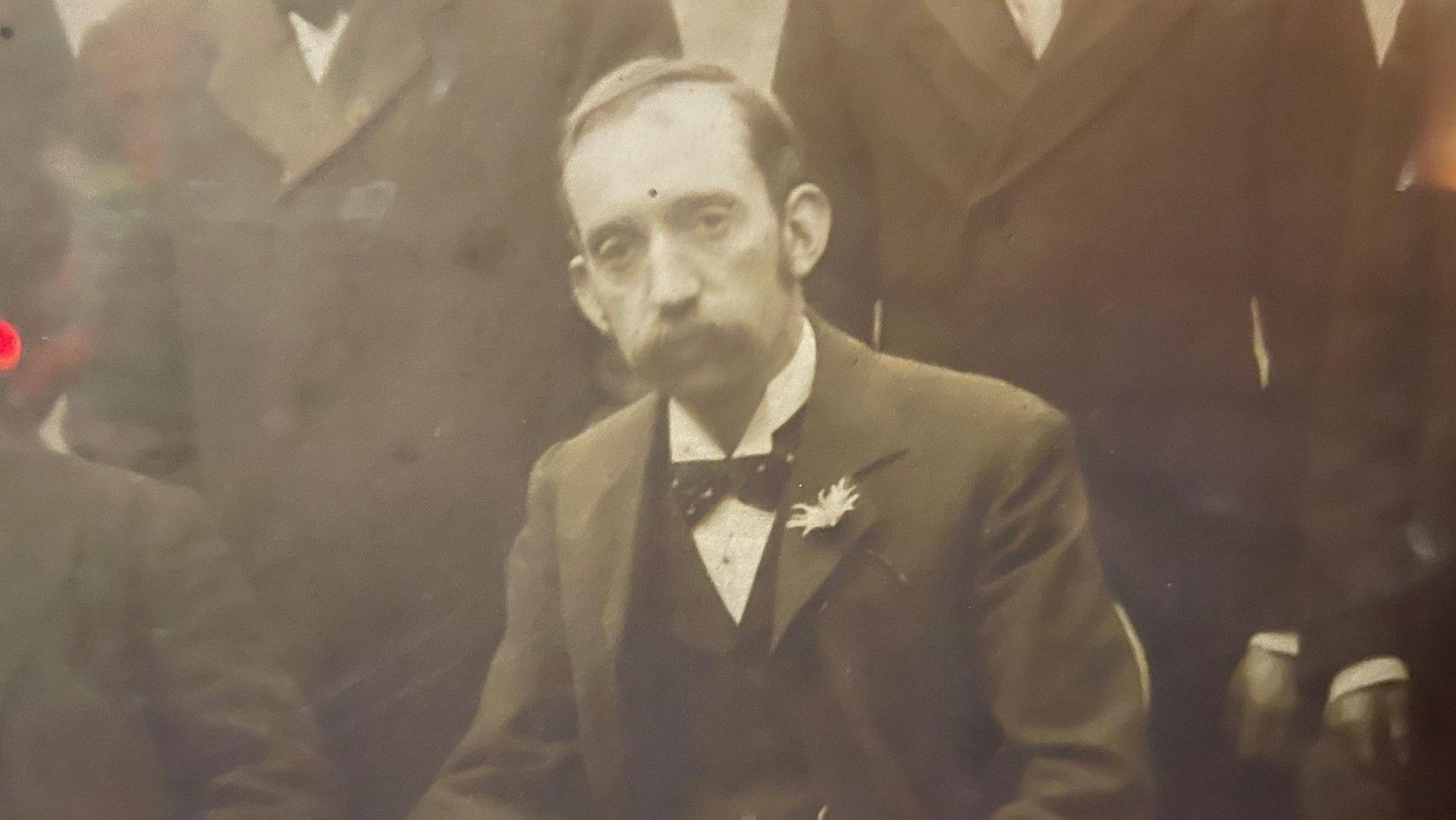
The mysterious club secretary Ralph Manley, who didn't appear to exist in any official public or census records.
The newspaper article paid tribute to Mr Manley and said he was the son of a sailor.
The information in the article was key to tracking him down.
"It told us where he was born and what he did for a living. But that was all we had to go on apart from a couple of electoral rolls where we found him."
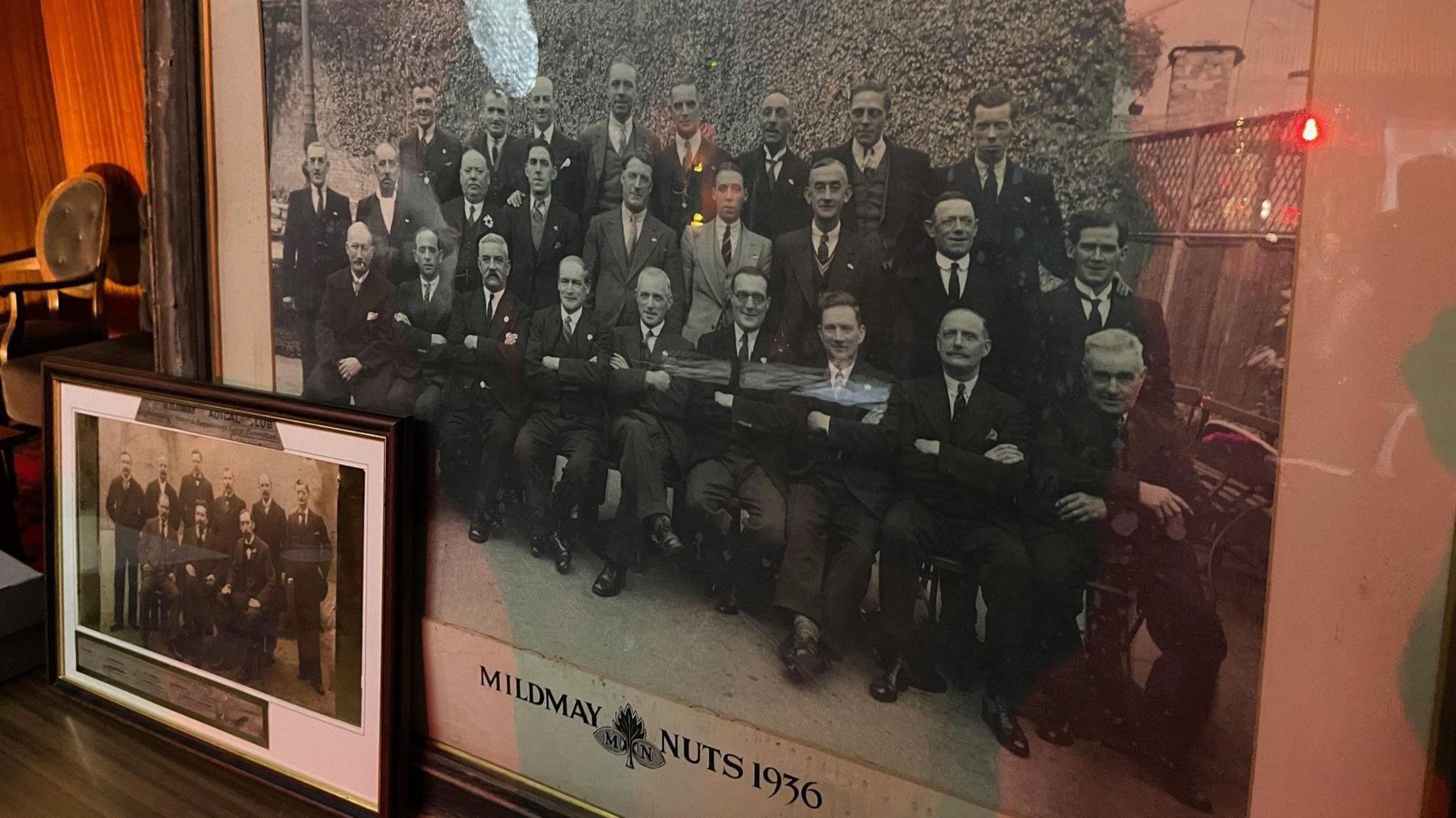
A photo of the Mildmay Nuts in 1936 and next to it a smaller photo of club committee members, including Ralph Manley, around the time of WWI
"We searched through census records, and birth, marriages and deaths for this man, couldn't find him anywhere at all," continued Ms Tabern.
"But with the address that we'd got on the electoral roll, we suddenly found this man living at the same address, doing the same job, with the same birthplace and same age but a totally different name."
His real name was Henry Dury, and the name Ralph Manley appeared to be his alias at the club. No one knows why he decided to use a different name there.
"We then got to find out more about this Henry Dury, and by finding his marriage record we found his wife living at the same address. Both Henry Dury and Ralph Manley died on the same date in 1936." explained Ms Tabern.
"There was no reason as to why he would be Ralph Manley here and Henry Dury there."
But regardless of the name he decided to use, he was seemingly a very significant figure to those in the trenches of northern Europe.
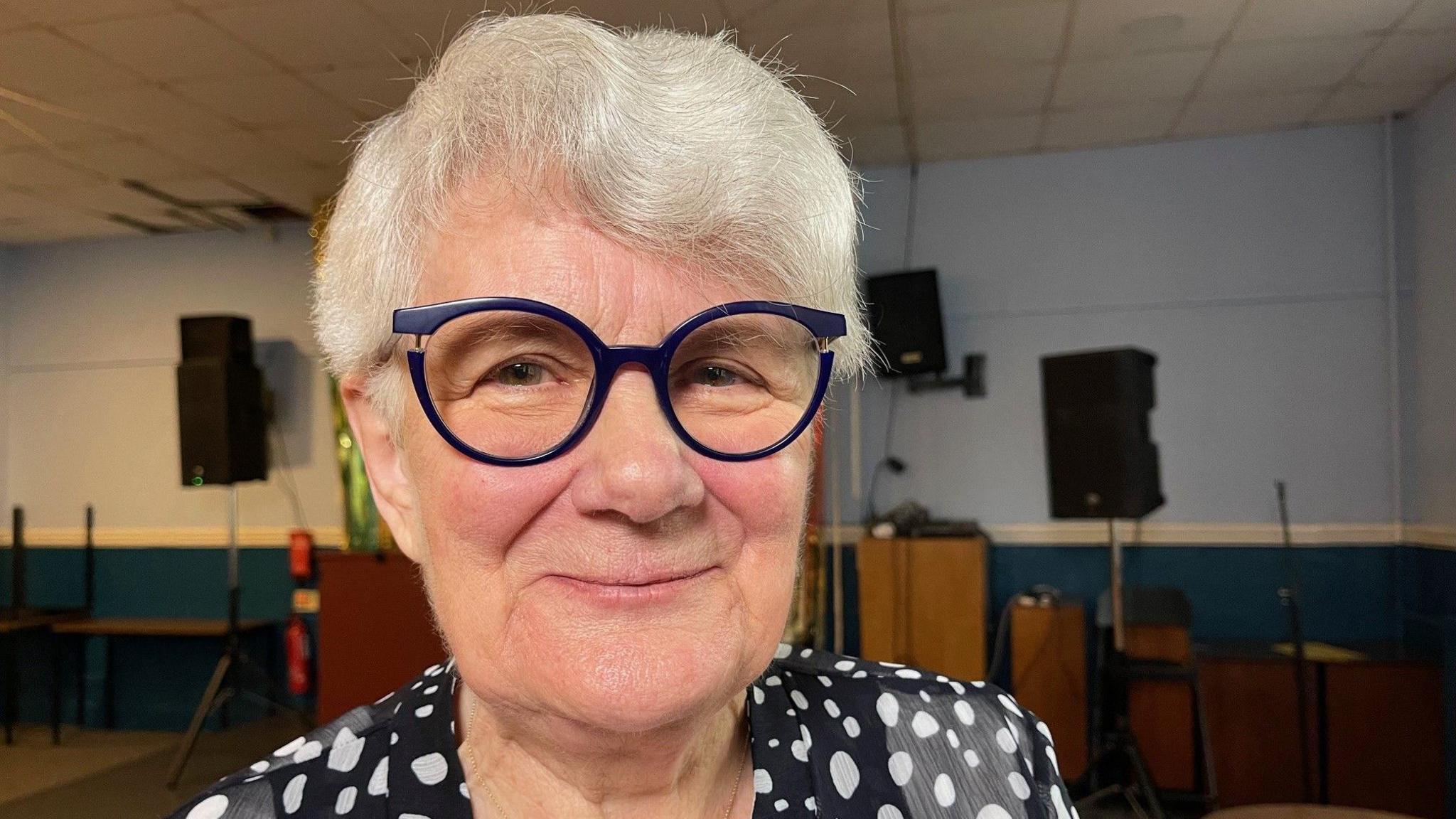
Chris Highmore found she could empathise more with her grandfather who was gassed in the war, after reading the lost letters
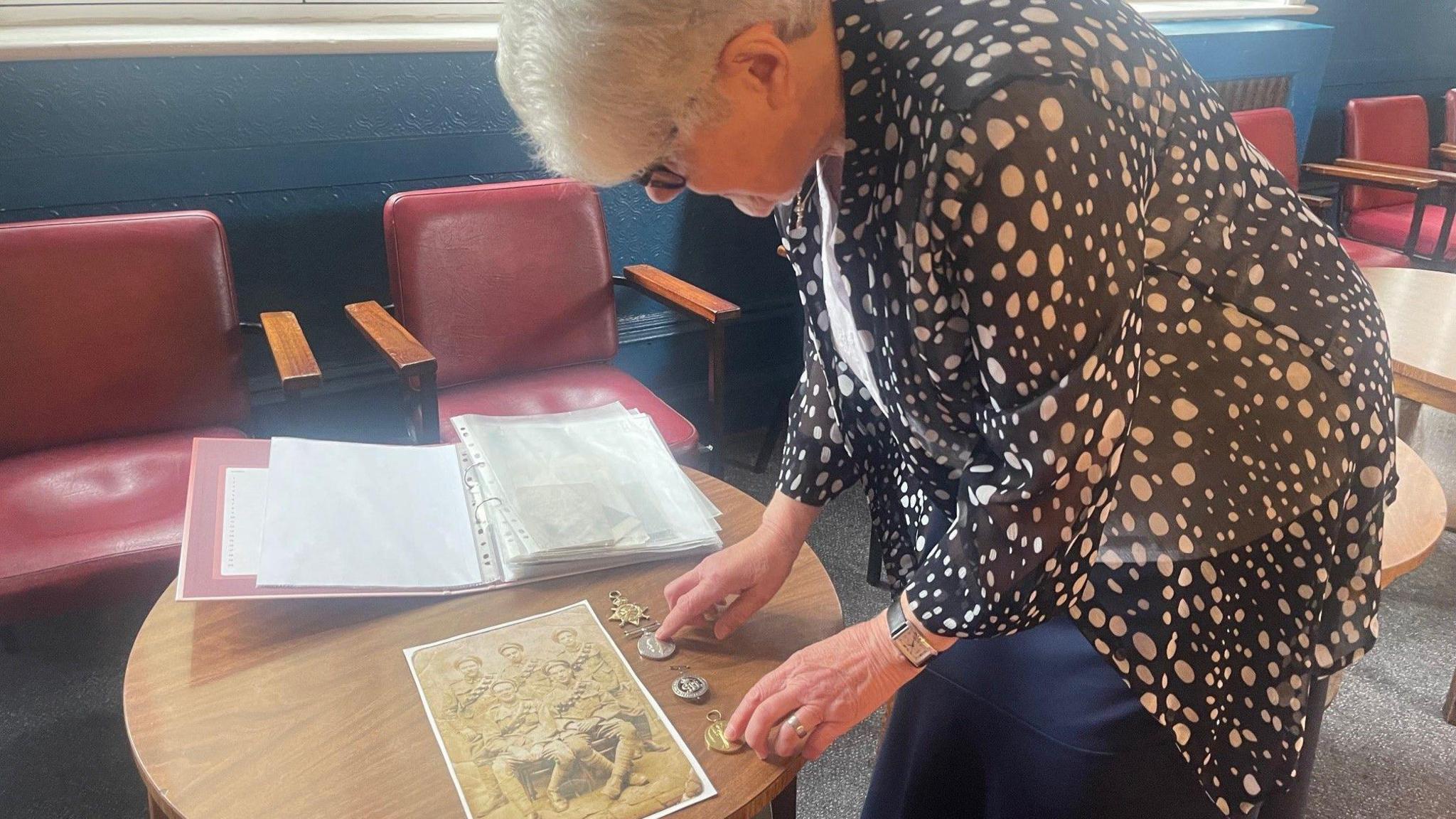
Chris Highmore looks at a photo and the medals of her grandfather and great uncle, both Mildmay Club members, who fought in WWI.
"Dear Mr Manley, very many thanks for the eatables received today, which I assure you are a treat," reads one of the letters addressed to Manley, from a Mr James Cole, "as luxuries are rather out of the question here. Excepting that we get many Christmas crackers from the Huns."
His letter went on to state: "But as get them all year round, they don't seem much of a luxury!
"But still, it's nice to be having a holiday on the continent, living in a hut, with all the inconveniences, gas and water, plenty of fresh air and commanding a good view of the German lines, all free of charge. No wonder we smile!"
"I am thinking of writing on the first shell we fire on Christmas morning; 'Greetings from the Mildmay club!'"
Retired teacher Chris Highmore, now in her 70s, was one of the people traced by Ancestry, and whose grandfather wrote that letter.
Chris knew of her grandfather as a rather bad-tempered person who was often angry at his children.
These letters have helped her understand what he went through in the war and why he came back so changed.
"I know that my grandfather James could tap dance, and I know he could play the violin," she said.
"I heard these stories from my mother. But then he went to war, and apparently he was gassed at some stage and that changed his personality."
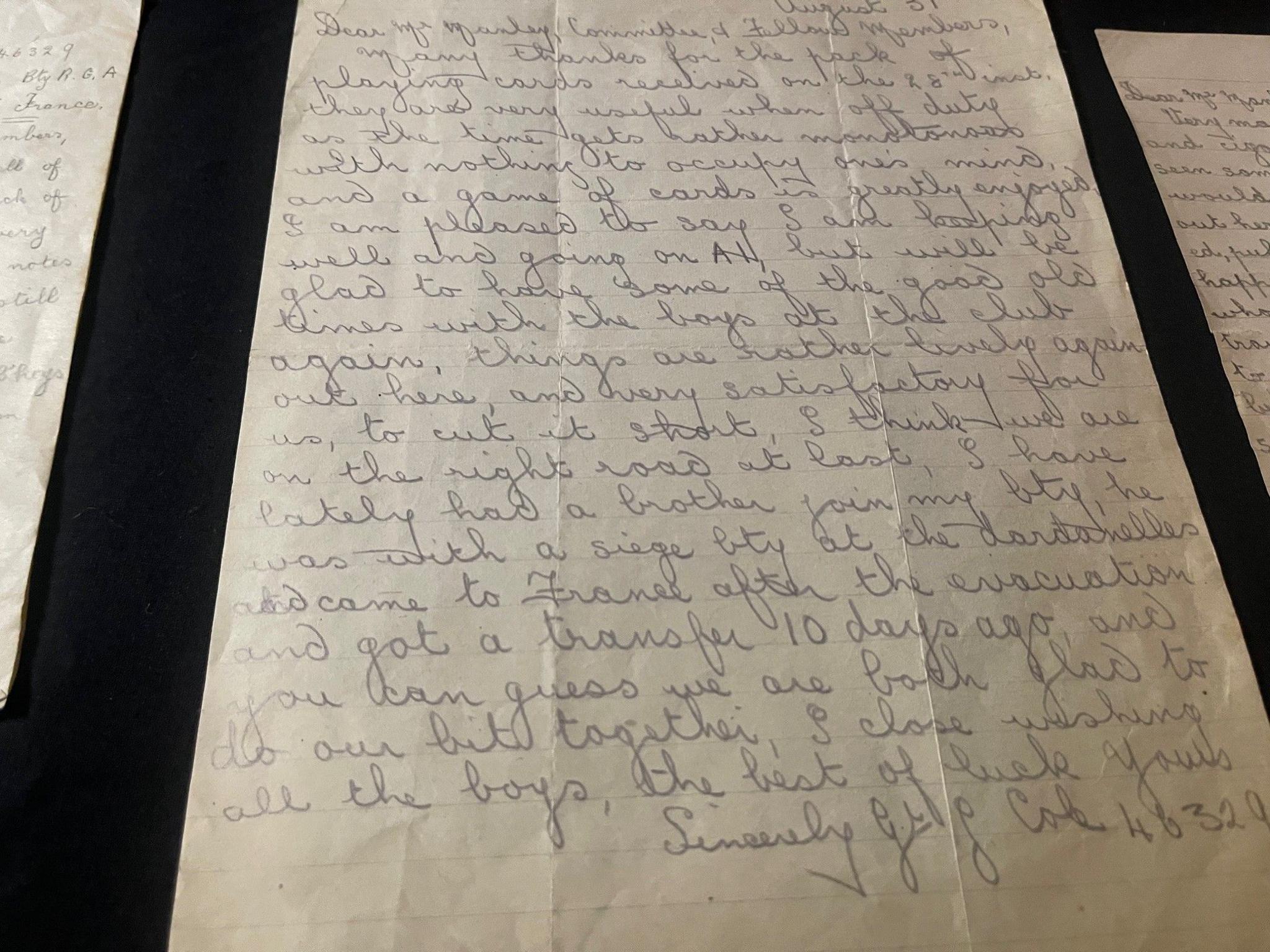
Another letter from James Cole
James who also fought in World War Two, was one of three brothers, two of whom went to war and were members of the Mildmay club. There are also letters to Mr Manley from James' brother Alfred.
"I mean it was wonderful to see his letters," said Chris, "because I knew nothing about Uncle Alf.
"My mother didn't really talk about him, except to say that he won the DCM, the Distinguished Conduct Medal, and I know he was presented with this medal in Hackney Town Hall by the mayor."
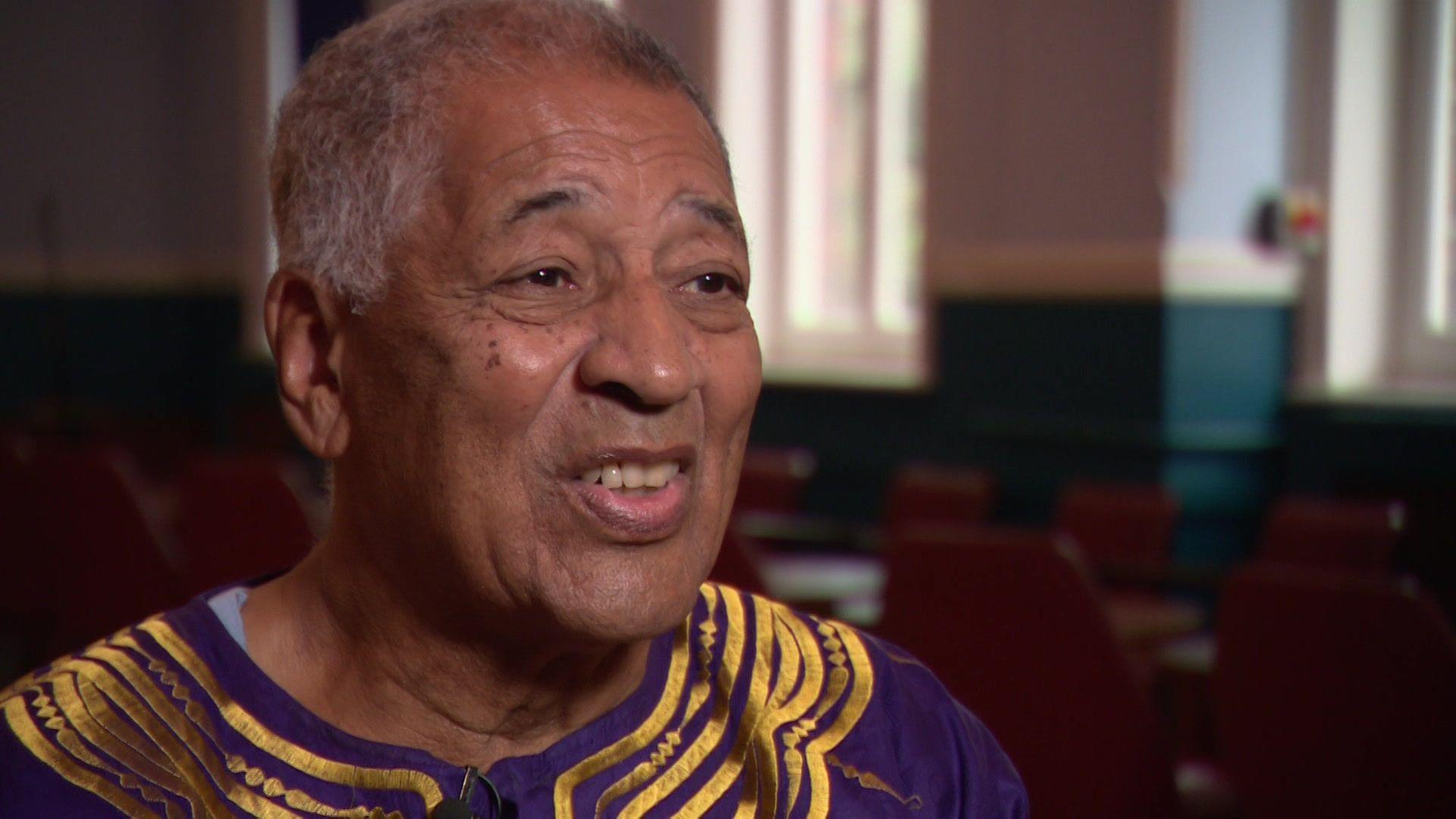
Kaye Larbi knew his great grandfather by his real name of Henry Dury
For Kaye Larbi, the elusive club secretary's great grandson, and who knew him by his real name of Henry Dury, the letters were also a surprise, as was Henry's alter ego of Ralph Manley.
Kaye's upbringing as the bi-racial son of a wealthy Ghanaian barrister was very different to that of his East End great grandfather Henry Dury but he was pleased to know more of his family history.
"He, by all accounts, was a pretty major figure at the time," said Kaye, who got the chance to see first-hand the club where his great grandfather was so important to so many people.
"He made something of himself and of the position he enjoyed.
"That we should have a relative who did his bit for the forces overseas, I find particularly gratifying. I'm proud of it."
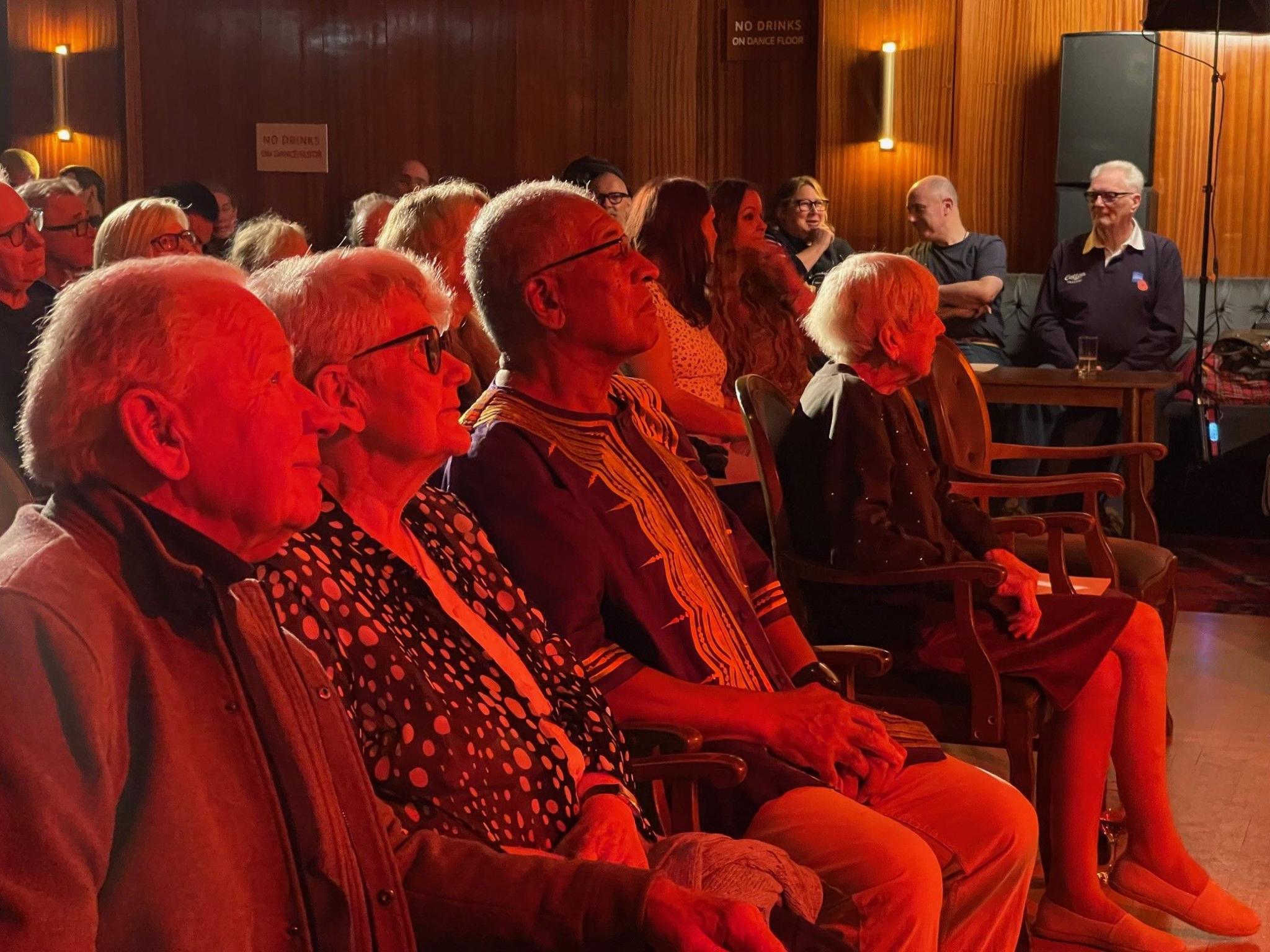
Kaye Larbi and Chris Highmore sitting together at the Mildmay Club for a presentation about their ancestors' letters to each other
Today the Mildmay Club is still going strong with more than 3,000 members, who own it through their membership, and run it.
When asked whether he might himself now consider following in his grandfather's footsteps by becoming a Mildmay Club member, Kaye joked: "You never know, if the drinks are cheap I probably will!"
Listen to the best of BBC Radio London on Sounds and follow BBC London on Facebook, external, X, external and Instagram, external. Send your story ideas to hello.bbclondon@bbc.co.uk, external